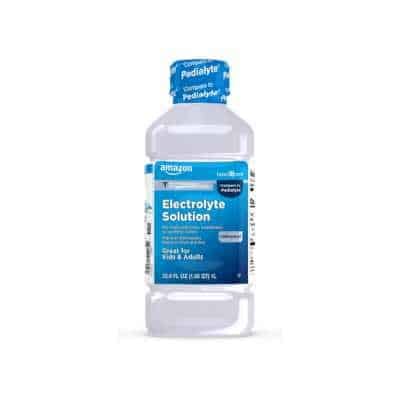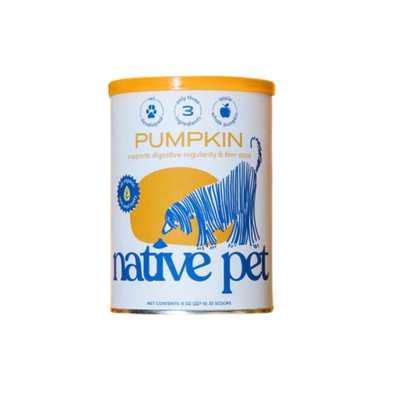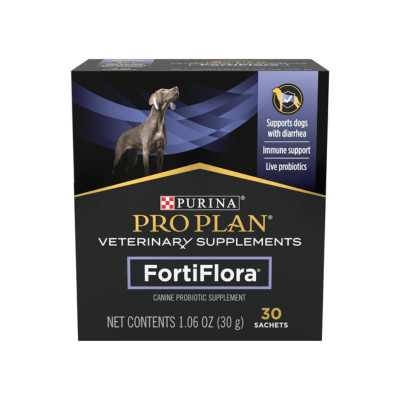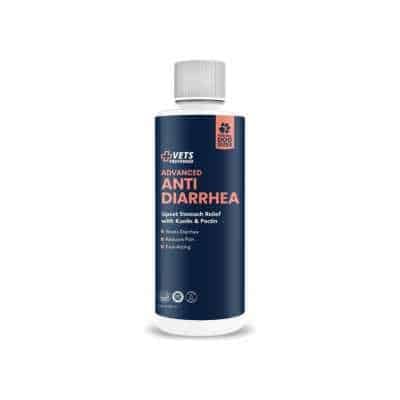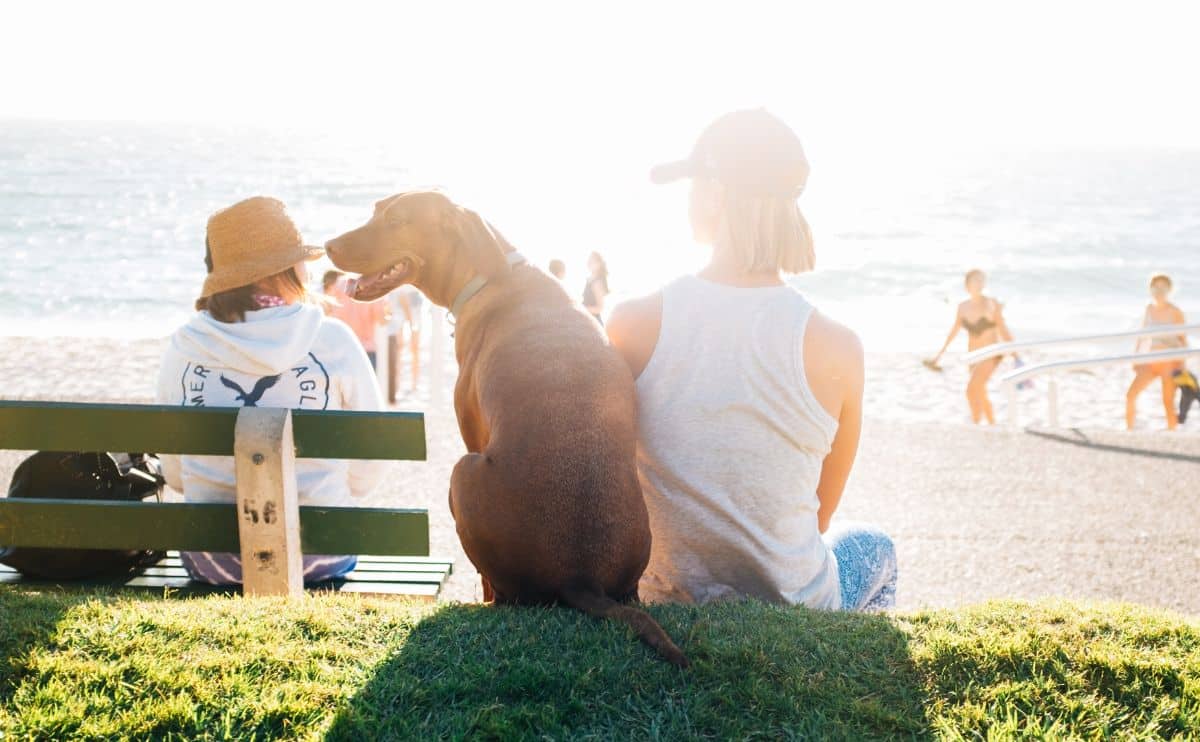What To Give A Dog With Diarrhea: Fast Fixes For Explosive Situations
When you purchase through links on our site, we may earn a commission. Here’s how it works.
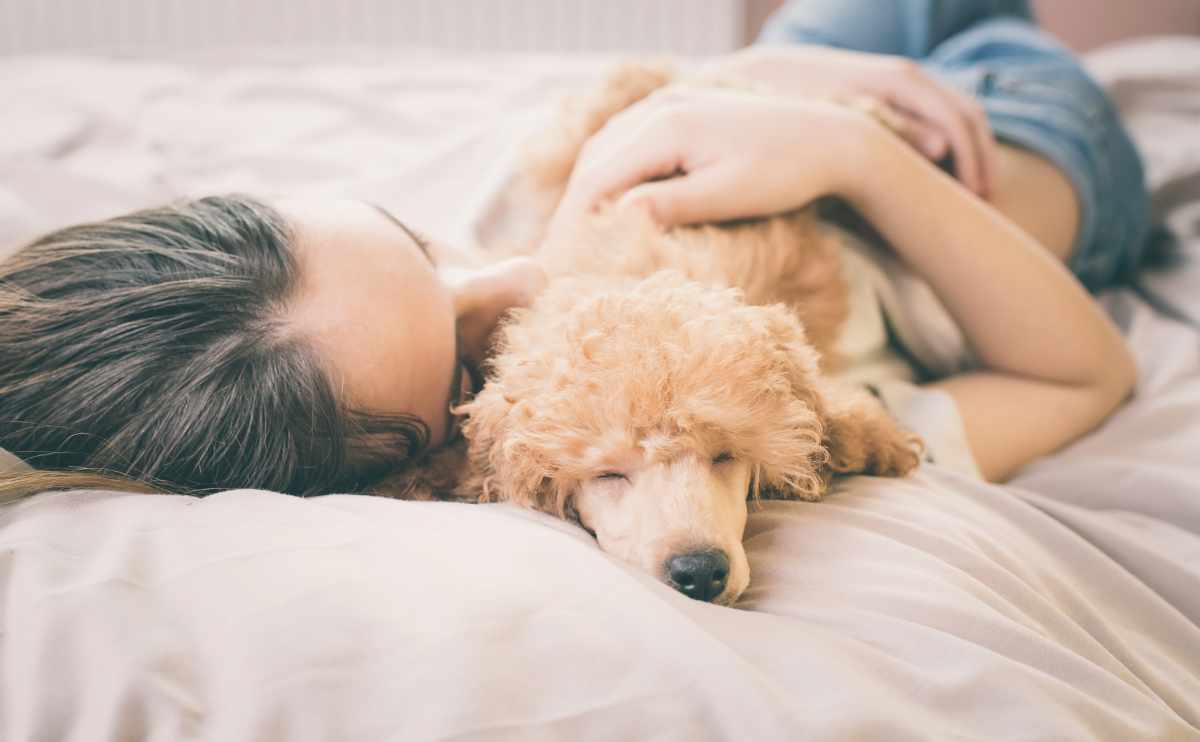
Your dog has activated poop mode, and your floors are now the casualties of war. No warning. No mercy. Just a high-velocity dog diarrhea spewing forth with the vitriol of an internet comment section.
The bad news? The “runs” have arrived. The good news? We can shut them down. Before your home transforms into a biological crime scene, try these fast, effective fixes—from pumpkin and probiotics to over-the-counter remedies that actually work.
What can you give a dog with diarrhea? We’ll break it down, covering what to feed, what to avoid, and when to stop playing hero and call your vet. Because let’s be honest, your dog will recover, but your floors may never forgive you.
What Causes Diarrhea In Dogs?
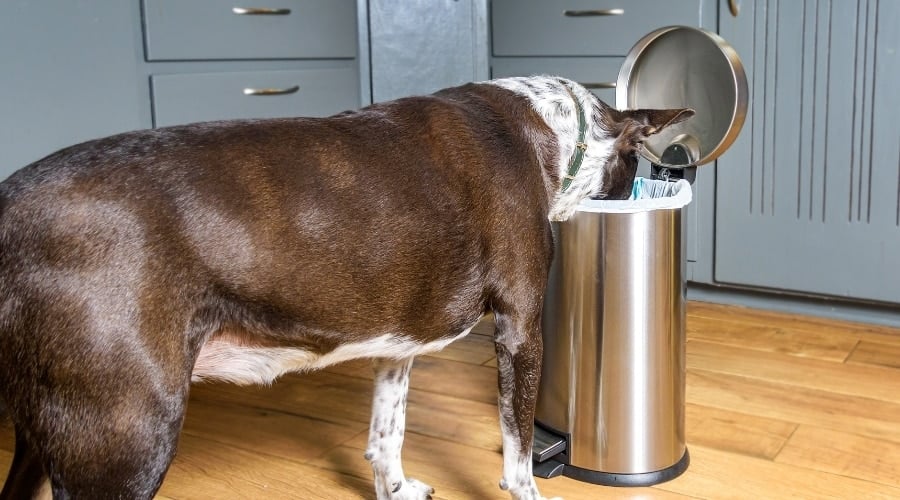
If your dog is blasting poo like a fire hydrant, you’re not alone. Stomach issues, including diarrhea, are one of the top reasons dog owners end up at the vet—usually clutching a plastic bag and looking like they’ve seen things they can never unsee.
The truth? Most cases of diarrhea aren’t emergencies. Dogs are walking garbage disposals with a talent for eating things they absolutely should not. However, frequent or severe diarrhea can signal something more serious.
Less Alarming Causes (aka Your Dog Made Questionable Life Choices)
Most cases of doggy diarrhea fall into this category—annoying, messy, but not life-threatening. These are the culprits behind the classic “oh no” moments:
- Dumpster diving and mystery snacks: Garbage, roadkill, spoiled food, that one disgusting thing they found on the sidewalk? If it’s foul, your dog probably tried to eat it.
- Food shake-ups: Suddenly switching to a new food without a transition period can send your dog’s stomach into full rebellion.
- Medication side effects: Some medications, especially antibiotics, can wreak havoc on gut bacteria, causing diarrhea.
- Stress and anxiety: A vet visit, boarding at a kennel, loud noises, or any other anxiety-inducing event can also send their stomach into chaos.
More Serious Causes: You Might Need a Vet, Stat

Sometimes, doggy diarrhea isn’t just poor snack choices but rather a symptom of something bigger. If the diarrhea is persistent, bloody, or accompanied by vomiting and lethargy, don’t wait—call your vet.
Potentially dangerous causes of diarrhea in dogs include:
- Bacterial infections: Bacterial infections like Salmonella or E. coli can turn your dog into a diarrhea machine.
- Colitis or Inflammatory Bowel Disease (IBD): Chronic gut inflammation can cause long-term digestive problems.
- Food allergies or sensitivities: Some dogs can’t handle chicken, beef, or grains—and their stomach makes it very clear.
- Foreign object ingestion: Socks, rocks, toys, underwear (we don’t judge). If it’s stuck in their gut, diarrhea might be the first warning sign before a complete blockage.
- Intestinal cancer: While rare, chronic diarrhea with weight loss can be a red flag for intestinal cancer in dogs.
- Liver, kidney, or heart disease: When these organs aren’t functioning properly, digestive issues often follow.
- Pancreatitis: Often caused by fatty foods (looking at you, bacon scraps), this is a painful condition that requires vet care.
- Parasites: Parasites like hookworms, roundworms, and Giardia are tiny freeloaders that cause big problems.
- Toxin ingestion: Chocolate, grapes, certain plants—dogs have a real talent for eating things that can kill them (learn which foods and plants are toxic to dogs).
- Viral infections: Viral infections, like parvovirus and distemper, are highly contagious and life-threatening. Puppies and unvaccinated dogs are at higher risk.
Note: If you suspect that your dog’s diarrhea could be due to a food intolerance or allergy, you may want to consider an at-home dog allergy test to discover the source. All you have to do is send a saliva or hair sample to the company’s lab and get results within a few weeks. You can then share these results with your vet to help further narrow down possible causes.
When Should I Contact My Vet?

With so many possible causes and underlying health issues, how do you know whether your dog needs to see the vet for diarrhea? “Diarrhea in dogs is a problem that we see very often in our practice,” says Dr. Rebecca MacMillan, BVetMed, BSAVA, PGCertSAM, a companion animal veterinarian in Gloucester, United Kingdom. “This is why the exact treatment I recommend depends on how sick a dog is.”
According to Dr. MacMillan, signs that your dog needs urgent veterinary attention include:
- Abdominal pain
- Bloody diarrhea
- Lack of appetite
- Lethargy
- Passing large amounts of watery diarrhea
- Vomiting
- Weight loss
Contact your veterinary clinic if your pup exhibits any concerning symptoms or if their diarrhea lasts over two days. They’ll tell you whether to bring your dog in for an examination. Your vet may need to perform tests such as fecal samples, blood tests, and diagnostic imaging (e.g., ultrasounds and X-rays). But in other cases, they might suggest symptomatic treatment, especially if your dog is otherwise well.
Did You Know?
Most active pet insurance policies cover treatment for diarrhea and other gastrointestinal (GI) issues. In most cases, diarrhea is also considered curable, meaning some insurers cover diarrhea treatment even if your dog has been diagnosed with previous bouts before the policy’s effective date. If your dog suffers from chronic diarrhea, pet insurance may be an excellent way to help cover the treatment cost as well as other health conditions that may arise.
Should I Feed My Dog With Diarrhea?
Your dog’s stomach is doing gymnastics, and now you’re wondering if feeding them will help or just make things worse.
Many vets recommend fasting for 12 to 24 hours to give the digestive system a break. Think of it like hitting the reset button—without adding more fuel to the fire. When food isn’t constantly rolling through the system, the gut can focus on healing instead of immediately ejecting everything like an emergency evacuation.
That said, hydration is non-negotiable. Diarrhea can cause dehydration and electrolyte imbalances, so keeping your pup hydrated is priority number one. Always provide fresh water, and if your vet approves, try an unflavored electrolyte solution to help replace lost fluids.
Watch for these warning signs that suggest your dog is dehydrated:
- Dark yellow urine or decreased urination
- Dry, sticky gums instead of moist, slick gums
- Excessive panting and lethargy
- Loss of skin elasticity (gently pinch the skin at the back of the neck; if it doesn’t bounce back quickly, dehydration is likely)
- Sunken eyes
If you notice these symptoms, call your vet. Severe dehydration can be life-threatening and may require IV fluids.
Fasting Isn’t for Every Dog
Before taking away the kibble, ensure fasting is safe for your dog. Some pups need regular feeding to avoid problems like a drop in blood sugar levels.
Fasting is not recommended for:
- Dogs with existing health conditions: If your dog has diabetes, liver disease, or any medical issue requiring consistent food intake, fasting is off the table.
- Puppies under 3 months old: Tiny tummies run on fast metabolisms, and skipping meals can cause dangerous blood sugar drops.
- Senior dogs: Older pups need steady nutrition to support their aging bodies.
- Toy and small breeds: These little guys burn through energy ridiculously fast, and fasting could cause hypoglycemia (low blood sugar).
When in doubt, ask your vet before withholding food. If fasting isn’t an option, you’ll need to adjust their diet, starting with bland, stomach-friendly foods.
How to Tell If Fasting Is Helping
If fasting works, you should see fewer bathroom sprints within 12-24 hours. Your dog may still have soft stools, but the diarrhea should slow.
If diarrhea persists or worsens, or your dog seems lethargic, weak, or uninterested in water, fasting alone isn’t enough—it’s time to call your vet.
Once things settle, start reintroducing food slowly with easy-to-digest options. But don’t rush it. Go too fast, and you might end up back at square one.
What Can You Give A Dog For Diarrhea?
You can help soothe your dog’s tummy troubles at home in many cases of mild diarrhea. Some home remedies that may do the trick include:
Pumpkin
Pumpkin is one of the best natural remedies for dog diarrhea, and for good reason—it’s packed with fiber, vitamins, and gut-friendly goodness. The soluble fiber in pumpkin absorbs excess water in the intestines, helping to firm up stools and bring some much-needed order to the chaos. At the same time, it contains prebiotics that feed healthy gut bacteria, supporting better digestion overall. Many dog owners swear by pumpkin as a gentle, effective fix for mild diarrhea.
For small to medium dogs, 1 to 3 teaspoons of pumpkin is usually enough, while larger dogs can handle 1 to 3 tablespoons per meal. You can mix it into their regular food or offer it on its own, depending on what your dog prefers.
Just ensure you’re using plain, canned pumpkin puree with no additives, spices, or sugar. Pumpkin pie filling might taste great, but it will only make your dog’s stomach situation worse. If you prefer a longer-lasting option, a pumpkin powder supplement like Native Pet’s organic pumpkin powder is a great alternative that’s easy to store and use as needed.
While pumpkin works wonders for many dogs, it’s not a cure-all. If your dog’s diarrhea persists despite adding pumpkin to their diet, it may indicate an underlying issue that needs a different approach. Consider other bland diet options or consult your vet to rule out anything more serious in those cases.
Dog Probiotics
Probiotics can be a game-changer for dogs dealing with diarrhea, especially when the gut is out of balance due to antibiotics, dietary changes, or just their unfortunate habit of eating things they shouldn’t. The digestive system relies on a delicate balance of good and bad bacteria, and diarrhea is often the result when that balance tips in the wrong direction. Probiotics work by introducing billions of beneficial bacteria into your dog’s gut, helping to restore order and get digestion back on track.
Many dog owners swear by probiotics for managing antibiotic-induced diarrhea, a common side effect when antibiotics wipe out both harmful and beneficial bacteria. But probiotics aren’t just helpful for diarrhea caused by medications—they can also support dogs with food sensitivities, stress-related stomach issues, or even chronic digestive conditions like irritable bowel syndrome (IBS). If your dog seems to have a sensitive stomach or experiences frequent digestive upset, probiotics may help keep things more predictable.
We recommend Purina Fortiflora for diarrhea, which gets fantastic reviews from pup owners. Probiotics have many other health benefits for dogs, including boosting immune health, easing allergies and skin inflammation, relieving anxiety, and more. See our reviews of the best probiotics for dogs to learn more.
Over-The-Counter Canine Diarrhea Medication
If you’ve tried natural solutions and aren’t having any luck, you may want to speak to your vet about using an over-the-counter medication formulated specifically for dogs. Many pup owners find Vets Preferred Anti Diarrhea quite effective for diarrhea (and gas relief).
This treatment contains kaolin, a naturally occurring clay known for its ability to absorb excess moisture and toxins in the intestines, and pectin, a soluble fiber derived from apples that helps bulk up stools. Together, these ingredients work to bind and remove irritants from the digestive tract, helping to firm up loose stools and ease discomfort. Many pet parents also find that this formula reduces gas and bloating, which can be a bonus if your dog’s stomach issues have been clearing out rooms.
While over-the-counter medications like this can be highly effective, they aren’t a cure-all. Always check with your veterinarian before giving any new medication, especially if your dog has existing health issues or takes other drugs that could interact with it.
Pepto-Bismol And Imodium
While Pepto-Bismol (bismuth subsalicylate) or Imodium (loperamide) may be okay for your canine companion, experts advise pup owners to always check with your vet first to see if these human medications are safe and to get appropriate dosing. Pepto-Bismol and Imodium can be harmful to certain dogs, may interact with other medications, and can be toxic if too much is given.
What To Feed A Dog With Diarrhea
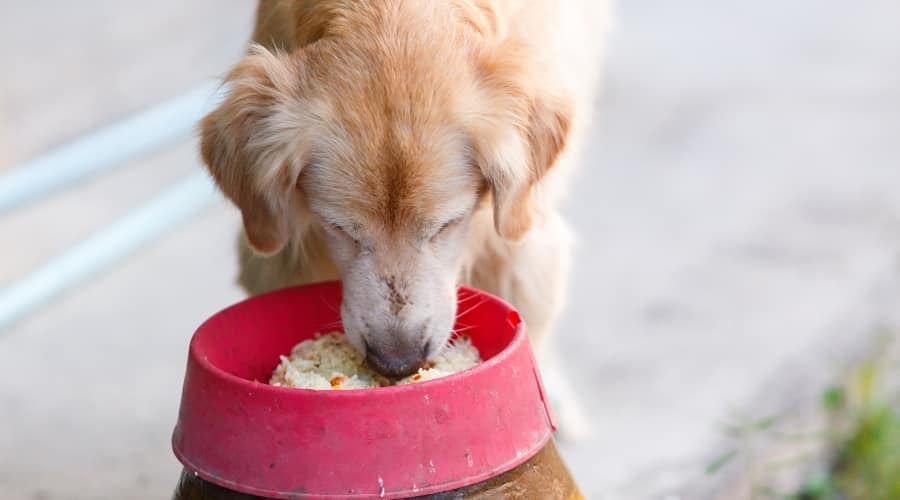
After your pup’s fasting period, you can slowly begin feeding him bland, easily digestible food as long as he’s symptom-free. It’s best to start with a very small amount of food to make sure your dog’s tummy can handle it. You’ll also want to feed small portions several times during the day. So, what’s the best food for a dog with diarrhea?
Here are some options that veterinarians typically recommend:
- Plain, cooked white rice with plain boiled skinless chicken breast (see our recipe)
- 100% pure canned pumpkin (not pumpkin pie filling) or pumpkin powder
- Boiled, mashed white or sweet potatoes (remove skin before boiling)
- Boiled, unseasoned eggs
- Plain, low-fat cottage cheese
“For dogs who have a mild upset tummy and diarrhea, I often suggest feeding them bland, easy-to-digest food for a few days such as a gastrointestinal/sensitivity diet or cooked chicken and boiled rice,” says Dr. MacMillan. “Probiotics can be useful in many cases too, helping to replenish ‘good gut bacteria’ which may resolve diarrhea faster. I often also recommend de-worming treatment to try and rule out underlying parasite issues. However, in my experience, dogs that don’t respond to these suggestions usually need additional diagnostics or treatments.”
Our Personal Experience With A Dog With Diarrhea
Our dog had a bad batch of canned dog food and had bad diarrhea for over a week. We tried giving him a bland food and that helped but there was lingering loose stool for awhile as the icky food got out of his system. We eventually took him to the vet to make sure it wasn’t something else more serious like a parasite. Since Georgie wasn’t showing any other symptoms we didn’t end up doing additional tests, and eventually the diarrhea went away on its own. His primary care vet said to give him a probiotic to help sooth his tummy, but then the emergency vet said that probiotics can actually do more harm than good in the long run, because his body needs to learn how to fight off bacteria on its own.
– Sadie Cornelius, Cavalier King Charles Spaniel mom
Frequently Asked Questions About Dog Diarrhea

Dog diarrhea is messy, unpredictable, and often arrives at the worst possible time. Whether your pup has a mild case or something more concerning, it’s natural to have a lot of questions. Below are some of dog owners’ most common concerns about diarrhea, from its causes to when it’s time to call the vet. Don’t see yours? Ask us in the comments!
What Should I Do If My Dog Has Diarrhea But Is Acting Normal?
If your dog has diarrhea but otherwise seems happy, active, and still has a good appetite, chances are it’s just a mild stomach upset. In many cases, diarrhea resolves on its own within 24 hours.
You can try withholding food for 12-24 hours (unless your dog is a puppy, senior, or small breed), then slowly reintroducing a bland diet like boiled chicken and rice. Offer plenty of fresh water to prevent dehydration. If the diarrhea continues for more than 48 hours, worsens, or is accompanied by other symptoms like vomiting or lethargy, it’s time to call your vet.
Why Does My Dog Have Diarrhea And Is Vomiting At The Same Time?
Diarrhea alone is one thing, but diarrhea and vomiting together are a red flag that something more serious may be going on. One common cause is toxic ingestion, which happens when a dog eats something harmful like chocolate, grapes, household chemicals, or medications. Certain infections and health conditions can also trigger both vomiting and diarrhea.
If your dog is vomiting repeatedly, has bloody diarrhea, seems weak, or refuses to drink water, call your vet immediately. Losing fluids and nutrients simultaneously increases the risk of dehydration, which can quickly become life-threatening. Seeking veterinary care as soon as possible can significantly affect your dog’s recovery.
Can A Sudden Change In Diet Cause Diarrhea In Dogs?
Yes! Dogs have sensitive digestive systems, and a sudden switch in food can send their stomachs into chaos. Even if you’re transitioning to a higher-quality diet, switching too quickly can cause diarrhea, gas, and stomach upset.
To avoid this, introduce new food gradually over 7-10 days, mixing a small amount with their current food and increasing the daily ratio. If you’ve already made the switch and diarrhea has hit, try feeding a bland diet for a few days before slowly reintroducing the new food at a slower pace.
Can Stress Or Anxiety Cause Diarrhea In Dogs?
Absolutely. Like humans, dogs can experience stress-induced stomach issues, and diarrhea is a common reaction. Events like vet visits, traveling, moving to a new home, boarding, loud noises (fireworks, thunderstorms), or being left alone for long periods can trigger digestive upset.
If your dog frequently experiences stress-related diarrhea, consider probiotics, calming supplements, or behavior training to help manage their anxiety. A vet visit may be needed to rule out other causes if diarrhea persists.
Can My Dog Get Diarrhea From Eating Grass?
Yes, but not always. Many dogs snack on grass occasionally, and for most, it’s harmless. However, eating large amounts can irritate the stomach and lead to diarrhea or vomiting. Grass can also be contaminated with pesticides, fertilizers, or parasites, which could make your dog sick.
If your dog is constantly munching on grass, it may indicate an underlying issue, such as boredom, digestive discomfort, or even a nutritional deficiency.
Can Vaccinations Cause Diarrhea In Dogs?
Yes, but it’s usually mild and short-lived. Some dogs experience temporary diarrhea or soft stools after vaccinations due to immune system activation and mild stress reactions. This typically resolves within 24-48 hours. However, if diarrhea is severe, lasts more than a couple of days, or is accompanied by vomiting, lethargy, or swelling at the injection site, contact your vet to rule out an adverse reaction.
What If My Dog Has Chronic Diarrhea?
If your furry friend has ongoing episodes of diarrhea and your vet has ruled out any serious health issues, you should consider a diet change (with the advice of your vet). Some dogs simply have sensitive stomachs and require special diets to keep their digestive problems at bay.
What’s the best dog diet for chronic diarrhea or other GI issues? In many cases, vets will recommend a prescription diet or suggest a non-prescription dog food formulated for sensitive stomachs. Some owners also find that switching their pup to fresh dog food or a limited-ingredient diet helps resolve chronic tummy problems. And giving your furry friend a daily probiotic is an excellent way to maintain his gut health.
Why Trust Canine Journal?
Sally has over 20 years of experience in human health sciences communications, including more than 10 years as an expert on pet health conditions and treatment. She’s part of a team of dedicated canine professionals and long-time dog owners at Canine Journal. We test and research the best pet products, not only for our own pups but for all of our readers.
